 Planning a family picnic is the perfect activity for fun summer learning. With all the outside games and food, it’s easy to see why your kids will never know you have a secret curriculum up your sleeve! Here are 15 great tips to make your summer picnics full of learning – AND lots of fun:
Planning a family picnic is the perfect activity for fun summer learning. With all the outside games and food, it’s easy to see why your kids will never know you have a secret curriculum up your sleeve! Here are 15 great tips to make your summer picnics full of learning – AND lots of fun:
- Races: Running races, the egg and spoon race, hopping-on-one-leg races – anything goes! Lots of exercise is linked to more learning – and better behavior. Have the kids run for at least an hour during your picnic to maximize this fun learning booster.
- Ball Games: Playing catch and kicking the ball helps with a kind of coordination called Motor Planning, which helps your children get from one place to another. The more confident your children are with their bodies , the more likely they are to take on other challenges in life.
- Daisy Chains: Dandelions or other common summer weeds are perfect for making daisy chains. Help your little one create the chain to help fine motor skills develop – and don’t forget to count the flowers.
- Leaf Adventures: When your children are busy with something else, collect leaves from a few trees. Then ask them to find which trees they belong to. When they do, tell them about the trees they’ve discovered.
- Bubbles: Blowing bubbles helps little ones build the oral muscles needed to improve their speech. Count the bubbles for more fun and learning.
- Scavenger hunt: Create your hints ahead of time, and have one adult hide the items while another facilitates games with the kids. Aim for 5 -6 items for younger children; older kiddos can stay focused for a longer list.
- Chalk it up: Bring chalk to draw pictures, letters, numbers, and shapes. Show your child how to play hopscotch and four square, too.
- Duck, Duck, Squirt (Gun): This variation on Duck, Duck, Goose goes like this: Whoever is “it” goes around the circle, counting “duck, duck, duck” until he picks a player to squirt with the water gun. Race around the circle to see who can get back to the open position first, and try not to get too wet!
- Geocaching: This fun activity takes some preparation, but everyone in the family will enjoy it. Look up the location of treasures stashed nearby, and find them with the GPS on your phone.
- Cloud Watching: Lie on the grass together and watch the clouds go by. Have everyone say what shapes they see to encourage creativity. See what stories your little ones can make up about their cloud friends. Let the imagination flow!
- Freeze Tag: This classic game is a great way to challenge little ones to control themselves, be patient, and have fun. Make sure everyone has a chance to be “it!”
- Visit the Fire Department: Many parks are adjacent to a fire station. Teach the kids about fire safety by arranging a tour before your picnic. Most fire departments enjoy showing off their equipment to families.
- Healthy Food: Plan to pack simple, healthy snacks for your picnic. Choose foods with brain-building Omega 3 fatty acids such as chia seeds (fun and yummy to dip fruit in), edamame, salmon, and trail mix with walnuts. Your child’s brain – and behavior – will benefit.
- Fresh Fruit Ice Pops: Before the picnic, have the kids help select and prep their favorite fresh fruits. Freeze fruit chunks and coconut water in popsicle molds to enjoy at the park. Yum!
- Don’t Forget the Sunscreen! Any outside adventure needs sun protection. This is the chance to teach little ones about the dangers of too much sun – and how to avoid it. Bring along the bug repellent, too.
Need more fun ideas? Contact Premier Academy Today!

 No time to exercise? Think again! As our kids head back to school, we’re squeezing more than ever into our hectic schedules. But you can work in plenty of physical activity for the whole family — simply by walking more. No other form of exercise is as easy, convenient and inexpensive. All you need is a pair of shoes and the will to get up and move.
No time to exercise? Think again! As our kids head back to school, we’re squeezing more than ever into our hectic schedules. But you can work in plenty of physical activity for the whole family — simply by walking more. No other form of exercise is as easy, convenient and inexpensive. All you need is a pair of shoes and the will to get up and move. Back-to-school is around the corner, but don’t be daunted by the transition from summer fun to school schedule. Children take their cues from their parents, so it’s key for US to get into the back-to-school mind-set first. Here are my pain-free prep tips for parents – our stressless adjustment will filter down to the kids, making it smoother for everyone.
Back-to-school is around the corner, but don’t be daunted by the transition from summer fun to school schedule. Children take their cues from their parents, so it’s key for US to get into the back-to-school mind-set first. Here are my pain-free prep tips for parents – our stressless adjustment will filter down to the kids, making it smoother for everyone.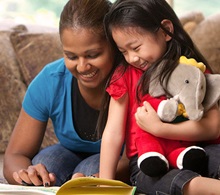 This new journey of preparing your child for Pre-K is a very important time in your child’s life. If you have placed your child in pre-school, this may be a very easy transition. At Premier Academy in Omaha and Elkhorn, our goal is to not only help your children but to help our parents!
This new journey of preparing your child for Pre-K is a very important time in your child’s life. If you have placed your child in pre-school, this may be a very easy transition. At Premier Academy in Omaha and Elkhorn, our goal is to not only help your children but to help our parents!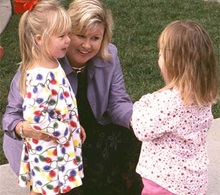 When it comes to child care, as a parent, there are a few things you should be looking out for when visiting daycare centers. We all want to send our child to a high standard, and good working preschool. As parents, we should always want to give our kids the best head start in life, and by far the most effective way to start with this is to send your kids to a high quality child care center. Kids need to socialize with other children from a very young age, it allows them to become familiar to social interaction, sharing and good manners, this is what your child will gain from attending a preschool. Not only will they learn how to act and behave around others, they will learn valuable reading and writing skills. Statistics show that kids who don’t attend preschools and head straight into schools have a much harder time learning than the children who did attend preschools. These statistics come in very handy when trying to give your kids the best head start in life, and it’s obvious which choice you should make.
When it comes to child care, as a parent, there are a few things you should be looking out for when visiting daycare centers. We all want to send our child to a high standard, and good working preschool. As parents, we should always want to give our kids the best head start in life, and by far the most effective way to start with this is to send your kids to a high quality child care center. Kids need to socialize with other children from a very young age, it allows them to become familiar to social interaction, sharing and good manners, this is what your child will gain from attending a preschool. Not only will they learn how to act and behave around others, they will learn valuable reading and writing skills. Statistics show that kids who don’t attend preschools and head straight into schools have a much harder time learning than the children who did attend preschools. These statistics come in very handy when trying to give your kids the best head start in life, and it’s obvious which choice you should make.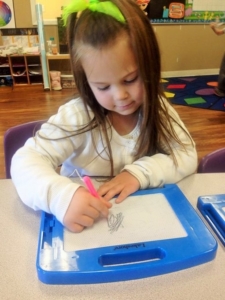 The first day can be hard on both parents and children. For many, it’s the first time that they will have been away from each other for such an extended period of time. Even though many kids will be excited for their first day of
The first day can be hard on both parents and children. For many, it’s the first time that they will have been away from each other for such an extended period of time. Even though many kids will be excited for their first day of 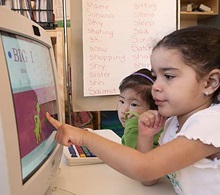 Most preschools will start accepting children at around age of 2, but that doesn’t mean your child is ready for preschool when they reach this age. Readiness for preschool has more to do with where your child is developmentally.
Most preschools will start accepting children at around age of 2, but that doesn’t mean your child is ready for preschool when they reach this age. Readiness for preschool has more to do with where your child is developmentally.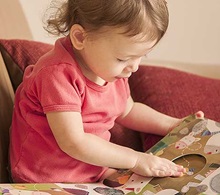 More and more, research tells us that our children’s healthy development depends on safe and positive experiences during the first few years of life. If you are a parent who works during these early years, choosing good
More and more, research tells us that our children’s healthy development depends on safe and positive experiences during the first few years of life. If you are a parent who works during these early years, choosing good 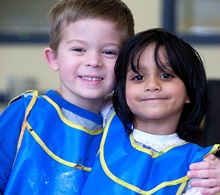 Finding
Finding 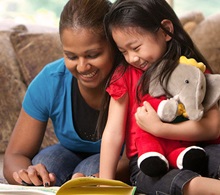 Brain development is highest during the first four years of life. The brain is forming important neural paths to help develop the child’s ability to perform and function and learn well. Their brain absorbs information and stores it, often feeling saturated with new input. Your child can benefit when interacting in a quality preschool which is content rich with appropriate information and materials. We have a first-rate staff of professional, certified teachers who are dedicated to providing Omaha and Elkhorn preschool children with the very best care and education available anywhere.
Brain development is highest during the first four years of life. The brain is forming important neural paths to help develop the child’s ability to perform and function and learn well. Their brain absorbs information and stores it, often feeling saturated with new input. Your child can benefit when interacting in a quality preschool which is content rich with appropriate information and materials. We have a first-rate staff of professional, certified teachers who are dedicated to providing Omaha and Elkhorn preschool children with the very best care and education available anywhere.